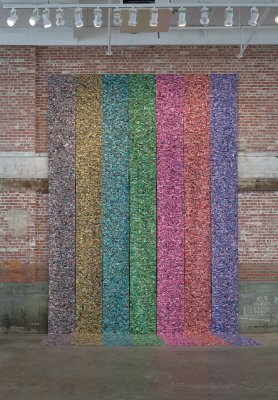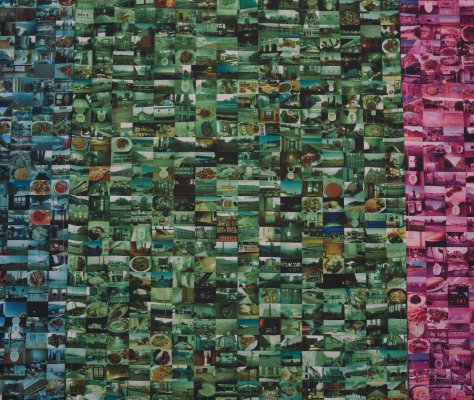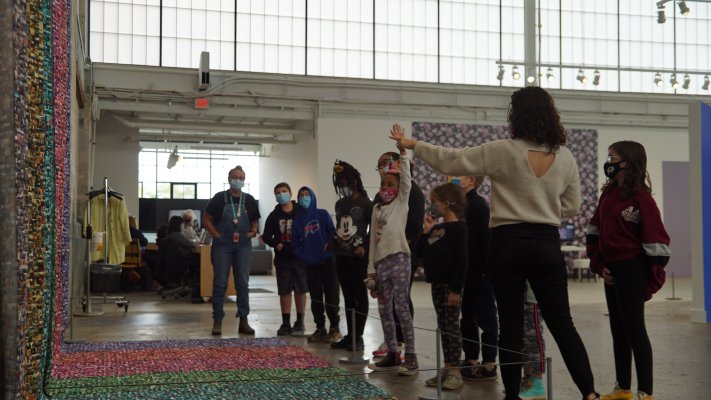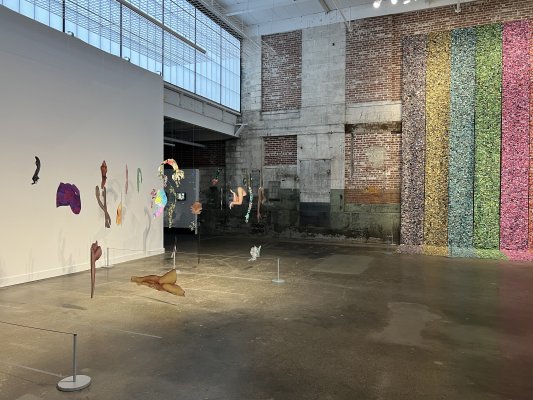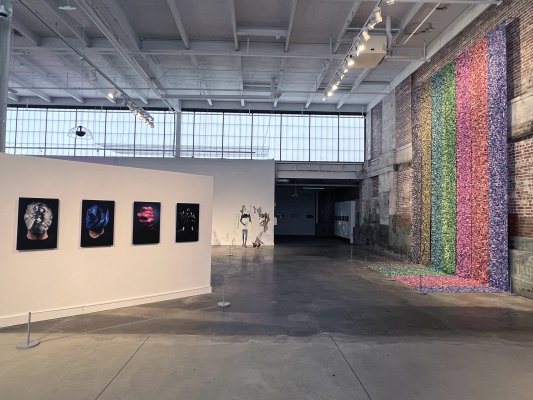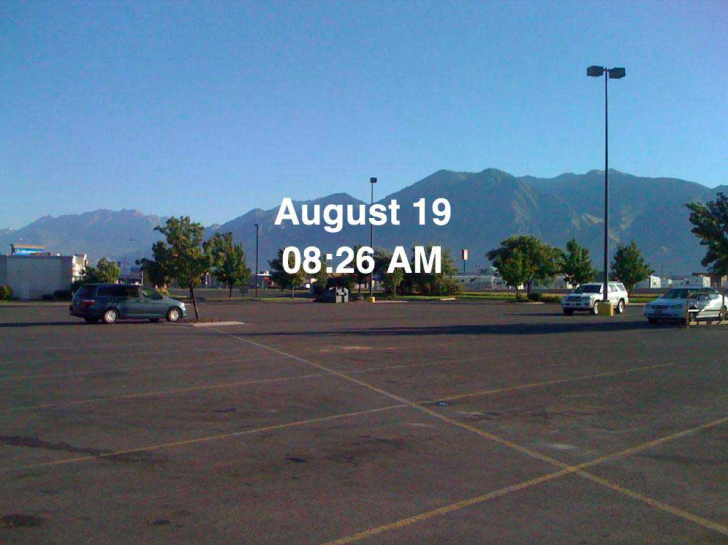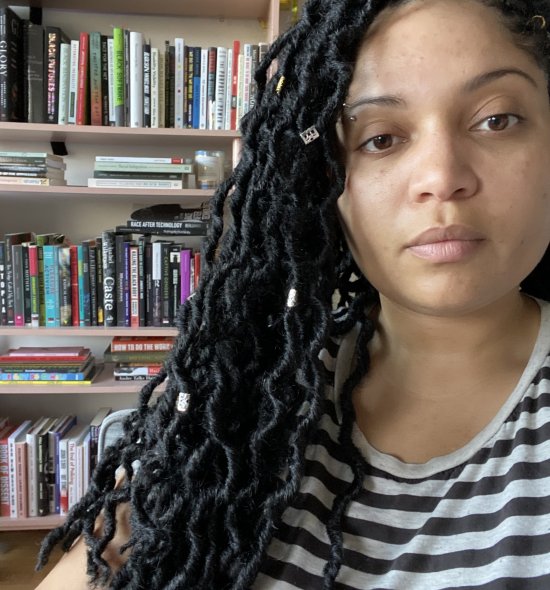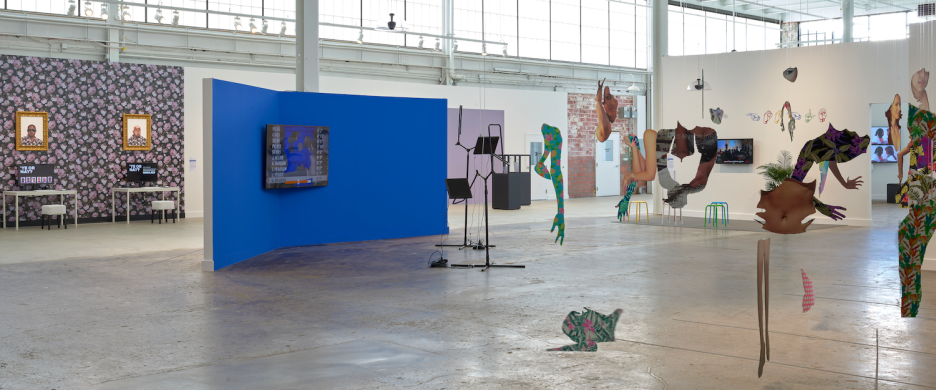Thousand Little Brothers, 2014
Pigment print on canvas
Courtesy of the artist
“By opening up every aspect of my life and every little detail, I actually maintain a very private and anonymous life. All of us make data. Our phones are tracking every piece of information about us. So when you don’t have enough information out in public, that’s actually sometimes more of a red flag than having too much information.”
—Hasan Elahi
In 2002, Hasan Elahi (he/him/his) was wrongly identified as a potential terrorist, leading to a six-month investigation by the FBI. In response, he began a long-term project called Tracking Transience, 2002–present, in which he posts documentation of his daily activities to the internet so that the FBI can monitor him more easily. By transforming the normally secret and coercive act of surveillance into a public and voluntary one, the project satirically embraces the erosion of civil rights in America, especially the increased surveillance of immigrants, people of color, and Muslims in the wake of 9/11.
Thousand Little Brothers includes almost 32,000 of the photographs in Tracking Transience. They are printed on seven canvas banners that together measure almost twenty-eight feet tall and fifteen feet wide, giving concrete form to the overwhelming scale of Big Data. The photographs are overlaid with the pattern of colored bars that US television stations use to test the Emergency Broadcast System, suggesting that surveillance constitutes a nationwide emergency. According to Elahi—who lives near Washington, DC—the stripes also refer to the abstract paintings of the Washington Color School of the 1960s, and particularly the striped canvases of Gene Davis (represented in the Albright-Knox’s collection), who avoided representing his politics in his art.
The related work Tracking Transience is freely available for you to experience on your own devices by visiting elahi.gmu.edu/track/.

